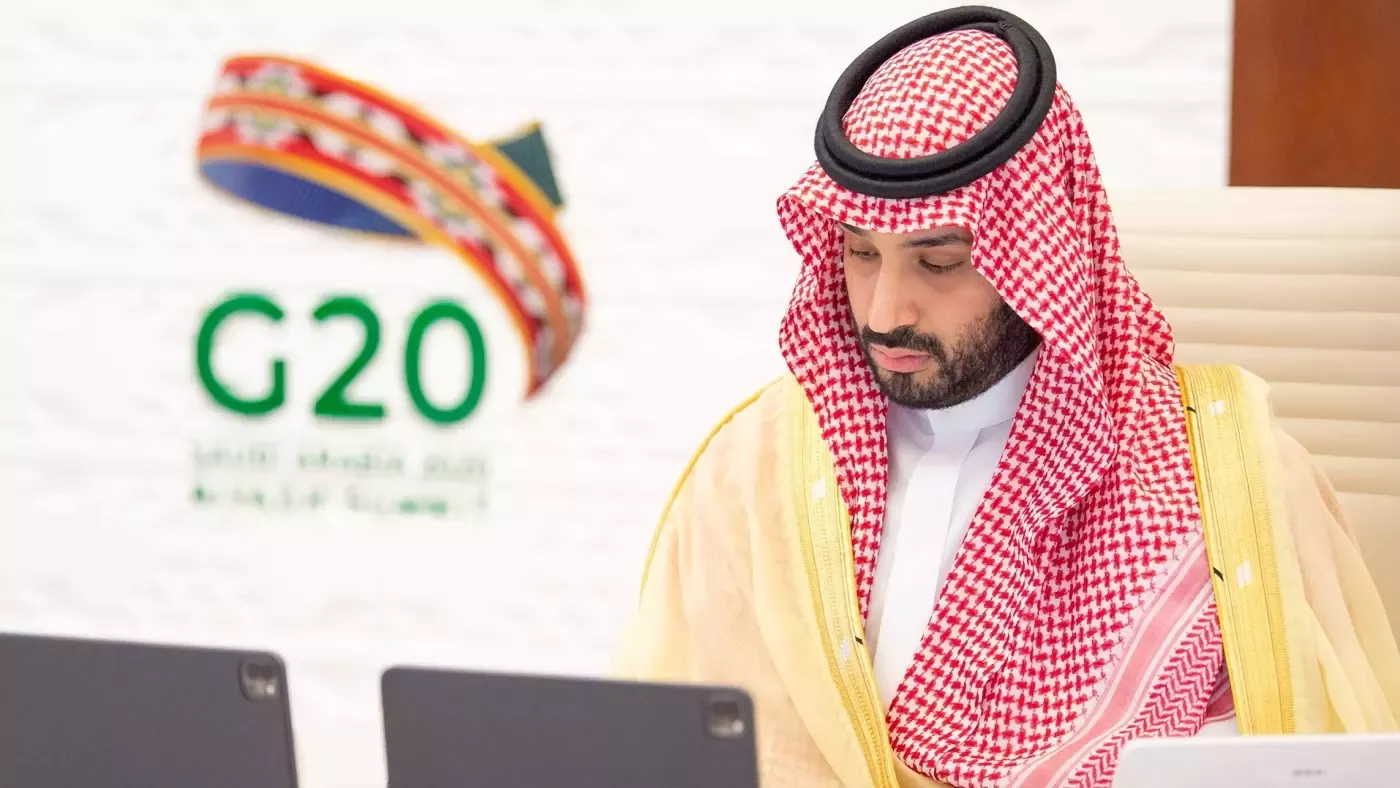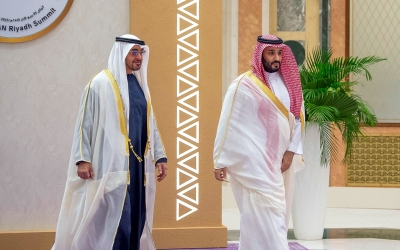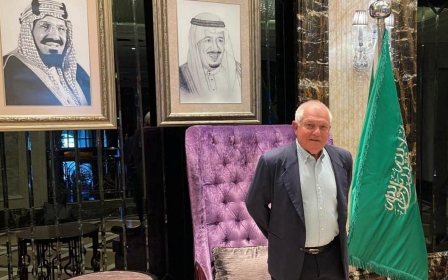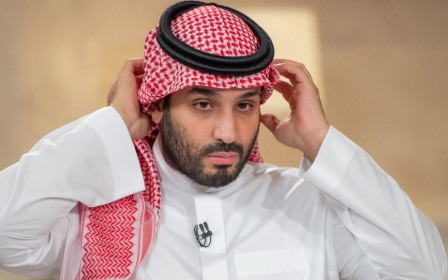Saudi Arabia 'detains people for anti-Israel social media posts'

Saudi Arabia has reportedly launched a crackdown on citizens who express views critical of Israel’s ongoing war on Gaza online.
The claims in a Bloomberg report on Wednesday come as US officials suggested talks are underway for a Saudi-Israel normalisation deal.
According to the report, citing unnamed diplomatic sources, the detentions include an executive who works for a company involved in Vision 2030, the flagship economic project spearheaded by Saudi Crown Prince Mohammed bin Salman.
Sources familiar with the matter told Bloomberg that the person was arrested in connection with expressing “incendiary” views on the current Israel-Gaza conflict.
A second detainee is a media personality who Bloomberg reports had said that “Israel should never be forgiven”, and another is someone who called for a boycott of US fast food restaurants in the kingdom.
New MEE newsletter: Jerusalem Dispatch
Sign up to get the latest insights and analysis on Israel-Palestine, alongside Turkey Unpacked and other MEE newsletters
Saudi activists say that the report shows that the prospect of normalisation with Israel has led to greater repression in Saudi society.
“It exposes the lies around potential normalisation between Saudi Arabia and Israel," Lina al-Hathloul, the head of monitoring and advocacy at the rights group ALQST, told Middle East Eye.
"It's touted as a peace treaty between Israel and the Arab states. There is no war between Saudi Arabia and Israel. So what we see is that instead of bringing peace, it will likely bring more arrests and harassment to the Saudi people."
Middle East Eye has contacted the Saudi foreign ministry for comment but had not received a response by the time of publication.
In 2020 and 2021, Israel reached US-brokered normalisation agreements with the United Arab Emirates, Bahrain, Sudan and Morocco.
Since then, there has been persistent speculation about a similar deal with Saudi Arabia, a key US ally.
In January, Prince Khalid bin Bandar, the Saudi ambassador in London, said that a normalisation deal was "close" but the kingdom paused US-brokered talks after the deadly attack on Israel on 7 October by Hamas-led fighters.
The Saudi foreign ministry said in February that no normalisation will take place without a ceasefire and progress toward Palestinian statehood.
However, US Secretary of State Antony Blinken said this week that Washington and Riyadh have engaged in intensive diplomacy over the past month to reach the normalisation deal.
"The work that Saudi Arabia, the United States have been doing together in terms of our own agreements, I think, is potentially very close to completion," he said at the World Economic Forum in Riyadh on Sunday.
Previous crackdowns
Crackdowns on free speech, particularly the detention of people for social media posts, has been a common practice since Bin Salman became crown prince in 2017.
The kingdom does not disclose the number of those detained, and does not prosecute them within the normal judiciary.
Such detainees usually appear before the notorious Specialised Criminal Court and are tried under a counterterrorism law, which rights groups have said enables gross violations of the right to free trial.
Those detained for social media posts include fitness instructor Manahel al-Otaibi, who has been held in prison since November 2022 for social media post supportive of greater freedoms for women in the kingdom.
They also include schoolgirl Manal al-Gafiri, who is serving an 18-year prison term for posting tweets supportive of political prisoners in the kingdom.
Likewise, Leeds University doctoral candidate Salma al-Shehab was sentenced in 2022 to 34 years in prison for social media posts demanding human rights.
This article is available in French on Middle East Eye French edition.
Middle East Eye delivers independent and unrivalled coverage and analysis of the Middle East, North Africa and beyond. To learn more about republishing this content and the associated fees, please fill out this form. More about MEE can be found here.





